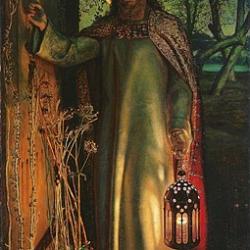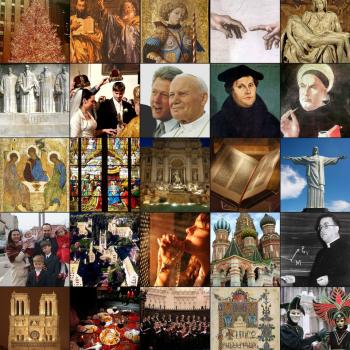Spiritual Ardor. Allowing oneself to truly love the Gods beyond breath is an amazing thing. It transforms everything, every interaction, every moment, every single day. I honestly do not know whether spiritual ardor can be developed, or whether one must gain it as a gift from the Gods Themselves. I don't know. I only know that it is a blessing worth praying to receive. It humbles and elevates, sustains and nourishes like nothing else in the world. It is what brings life to a faith and set of practices that can otherwise grow bitter, brittle, and stale. It is the life's blood, the gift of Loður, to the body of our traditions. I counsel my students: if you pray for nothing else, pray for this and that you may have the good sense to fan that flame once it is lit.
Modesty. I never realized that this could be a Pagan virtue until I began reading classical Roman authors in the original Latin. In many respects, it's the outward expression of an inward humility. It's behaving in a way that does one's Gods and one's ancestors honor. It allows one to become a productive member of a community without fuss and without the barrier that one's ego can so often create.
Modesty is the practice of living as though one were the descendant of the Gods. It might mean behaving a certain way. For some, they may be moved to express this modesty by dressing a certain way, but these are nothing more than outward expressions of an inner state of being and will by necessity vary from person to person. I cover my head sometimes when I pray, when the presence of the Gods feels overwhelming. It feels like correct behavior to me. I do not expect that everyone will follow suit. This is the direction in which my sense of humility, respect, and modesty moves me. What constitutes right practice and behavior for me may not be right for anyone else and that's okay. The Gods don't need, want, or expect cookie-cutter spirituality.
Even working within a tradition, we must each find our own way to practice and thrive. Sometimes those ways may seem outwardly antagonistic but in reality, they are not; each of us has the path that is right for us to follow within our faith. Modesty is the understanding that our duty is to tend to that for ourselves, not force our way on anyone else. It goes back to doing what is right because it is right, not because one will gain accolades or community acclaim for doing it. It's that type of shift in one's priorities and sometimes that can be very, very difficult.
In some cases, modesty may mean not watching a certain movie, because it is disrespectful to the Gods, or not participating in certain gatherings because respect for the Gods is lacking. In this way it is the sister of piety. Its expression may vary from person to person but what is at its core is the knowledge that we are shaping ourselves, honing ourselves, building the character of our spirits and spirituality bit by bit, tiny choice by tiny choice, and it all matters. All of it.
Generosity and its corollary, Charity. Julian the Martyr, whom Christians call the Apostate, chided Pagan priests of his time (and rightfully so) because Christians were providing charity not only for their own people, but for Pagans as well. Julian found this incredibly shameful. I think we should take note. "How can the man who, while worshipping Zeus the God of Companions, sees his neighbors in need and does not give them a dime—how can he think he is worshipping Zeus properly?" - Emperor Julian, "Letter to a Priest"
Part of being a good human being is acknowledging our interconnectivity. There's a lot of talk within Heathenry about community and kindreds and tribes. The logical corollary to that is that we support those groups of which we are a part. All the nine worlds are connected through the Tree, so we too are connected through the fluctuating threads of wyrd, none of which we weave in total isolation. Amongst our Northern ancestors, kings were referred to as ‘ring givers' and were expected to share their wealth and support those under them. I believe that this is an obligation that we all share, within our differing means. When Thor went traveling and shared hospitality with moral men and women, he would slaughter His goats to feed the family with which He lodged. Those goats would then be restored to Him the next morning. Here is our example of how to behave with those less fortunate.
Generosity is a virtue to be practiced not only with our community but with our Gods and ancestors too. I've often heard "tis better not to give than to give too much," usually when the subject of offering to the Gods or the dead comes up, and usually when it's somewhat inconvenient. I'm sorry. I didn't realize that stinginess was listed among the nine noble virtues. I've talked about this at length on the Pantheon blog and I suggest that folks read that original article. I won't beat the proverbial dead horse in this particular column.





